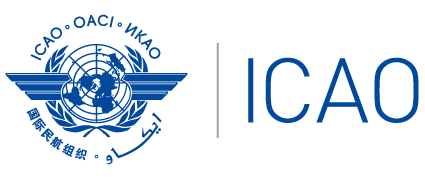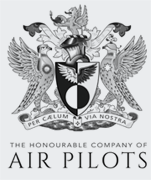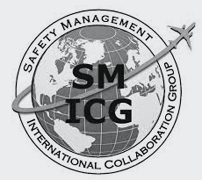Pilot Fitness to Fly
Pilot Fitness to Fly
Article Information
Category:
Content source:
Content control:
Last modified:
08.Mar.2025
Article UID:
Description
Pilot careers are lasting much longer, and pilots are retiring later than they retired in the past. Annual flying hours and work-related demands are constantly increasing. It is crucial, now more than ever, that professional pilots maintain not only their Medical Certificates , but also optimal physical and mental health both during, and after their flying careers. ICAO`s historic approach to Medical Fitness in licence holders has been based on detecting increased medical incapacitation risk (from ill health) once it has occurred, and by taking action to reduce the impact on aviation safety, such as restricting a licence or removing the licence holder from operations.
“Use it or lose it!” That old saying not only relates to certain flying skills but also to the human body. Muscles that aren’t used tend to waste and weaken. To keep muscles and the cardiovascular system working at their optimum levels, they must be stimulated and utilised. Being more physically fit will generally make you look and feel better. Additionally, people that carry too much weight or are bordering on obesity often encounter many health-related problems, ranging from chronic backaches to advanced cardiovascular disease. A high level of personal fitness can help to cope with the various emotional and physical stressors that are encountered in the flight environment.
It should also be recognised that fitness for duty in aviation also relates directly to flight attendants, air traffic controllers, maintenance technicians, dispatchers and ground handlers.
Definition
A pilot must be able to perform essential job functions and not be limited because of any health and fitness risks relating to: Physiological, Cognitive, Psychological and/or Psychiatric conditions.
Effects
The effects of a reduced physical and/or mental state of fitness in a pilot can be minimal to far reaching, with potential and real Risk to Life situations. In the modern world of aviation there are several factors to consider which alone or together can significantly affect the outcome of a flight;
- Use of certain over-the-counter drugs (e.g., Benadryl);
- Use of illicit or recreational drugs;
- Impairing conditions associated with aging;
- Use of prescription of impairing prescription medications;
- Pilots without regular medicals have higher rates incidences;
- Lack of proper medication information; and,
- Lack of education.
The effect of some, or all of these factors can present themselves onboard as;
- Flight management system programming errors;
- Checklist omissions;
- Altitude deviations;
- Standard operating procedure non-compliance;
- Missed radio calls;
- Clearances; and,
- Requests for physical assistance.
Defences
A healthy lifestyle helps to ensure that professional pilots pose a minimal risk to safety from the beginning of their careers until they retire. In short, this can be accomplished by:
- Maintaining a healthy heart;
- Developing mental health resilience;
- Adopting a low-risk strategy toward alcohol;
- Avoiding illicit drugs;
- Adopting cancer avoidance habits;
- Managing diet and weight;
- Managing risks associated with accidental injury;
- Getting sufficient sleep;
- Understanding and reducing travel-related risks;
- Use of hearing and vision protection.
ICAO`s medical guide for pilots Fitness to Fly focuses on prevention by providing guidance to pilots on how to stay healthy, thereby minimising the need for interventions involving licence restrictions. Recent research in the science of preventive medicine has demonstrated that following appropriate recommendations on health maintenance can be expected to significantly reduce the number of medical problems experienced during a career.
The guide also recognises that background knowledge and interest in the subject of maintaining and improving health varies considerably among individuals. It is structured so that those who wish to quickly learn how to avoid the main causes of ill-health, can read the summary at the end of the guide for a brief overview. Those who want more detail will find that reading the entire guide provides a comprehensive look at all the major issues affecting fitness to fly. Each chapter ends with a section on the relevance to aviation of the condition under consideration. Chapters are written for pilots, in their language, giving proper guidance without judgement.
Are you Fit to Fly
Your doctor and flight surgeon do not see you daily. They depend on you to seek them out when you think you have a health condition. However, on a day-to-day basis, you have the responsibility to determine if you are Fit to Fly or possibly should seek medical attention. If you think of the following Q&As, it will help you make a safe decision.
Am I fit to fly?” Yes, I‘M SAFE!
| I | Illness | Am I ill? Do I feel sick in any way? |
| M | Medication | I take drugs: will they impair my thinking, judgment or performance? |
| S | Stress | Am I mentally fit? Can I devote my full attention to flying? |
| A | Alcohol | When did I take the last drink? Am I suffering hangover effects? |
| F | Fatigue | Am I physically fatigued? Am I too tired to give 100%? |
| E | Eating | Am I hungry? Did I eat too much? Do I have indigestion? |
This simple mnemonic, I’M SAFE, is a checklist to help you remember the main lifestyle risk factors that might impair your performance during flight.
Symptoms
Divided into three main areas symptoms that could support a lack of fitness to fly;
Medical:
- Sleep apnea/sleep disorders/fatigue
- Medication side effects
- Heart/lung disease
- Endocrine – Diabetes, thyroid
- Hearing/vision deterioration
- Acute medical conditions
- Neurological disease
- Anemia/heavy metal poisoning
Psychological:
- Life events (family, legal, financial, work)
- Post-traumatic stress disorder (PTSD)
- Depression
- Substance abuse
- Anxiety disorders
- Personality traits
- Loss of desire to fly/work
Cognitive:
- Mild cognitive impairment – reversible
- Impairing medications
- Alzheimers/dementia
- Substance dependence
- After effects of surgery
- Brain injury/bleed /tumour (many are treatable with cognitive rehabilitation)
Related Articles
- A320, vicinity Abu Dhabi UAE, 2012
- A320, en-route Alpes-de-Haute-Provence France, 2015
- ATCO On-duty fitness
- Flight Crew Licensing
- European Cabin Crew Medical Fitness Requirements
- The Effects of Alcohol and Drugs on Pilot Performance
- Well-Being (OGHFA BN)
- Lifestyle and Adverse Performance Effects (OGHFA BN)
Further Reading
- Fitness to Fly - A Medical Guide for Pilots ICAO Safety Booklet 2018
- CAA Medical Requirements for Private-Pilots Information on medical standards, certificates and self-declaration of medical fitness 2015
- CAA Medical Requirements for Commercial Pilots by Flight Deck Friend 2018
- CAA UK Medical Standards Pilots, ATC & Cabin Crew 2015 Medical requirements and guidance material for the certification of pilots, air traffic controllers and cabin crew
- Assessing Fitness to Fly CAA Aviation Health Unit
- Fit for Flight Developing a Personal Fitness Program by JR Brown FAA Civil Aerospace Medical Institute 2018
- Pilot Fitness Aviation Rule Making Committee 18 November 2015
- Loosing the Right Stuff Pilot Fitness for Duty a Review by Quay Snyder, MD, MSPH Aviation Medicine Advisory Service 5 May 2016
Categories







